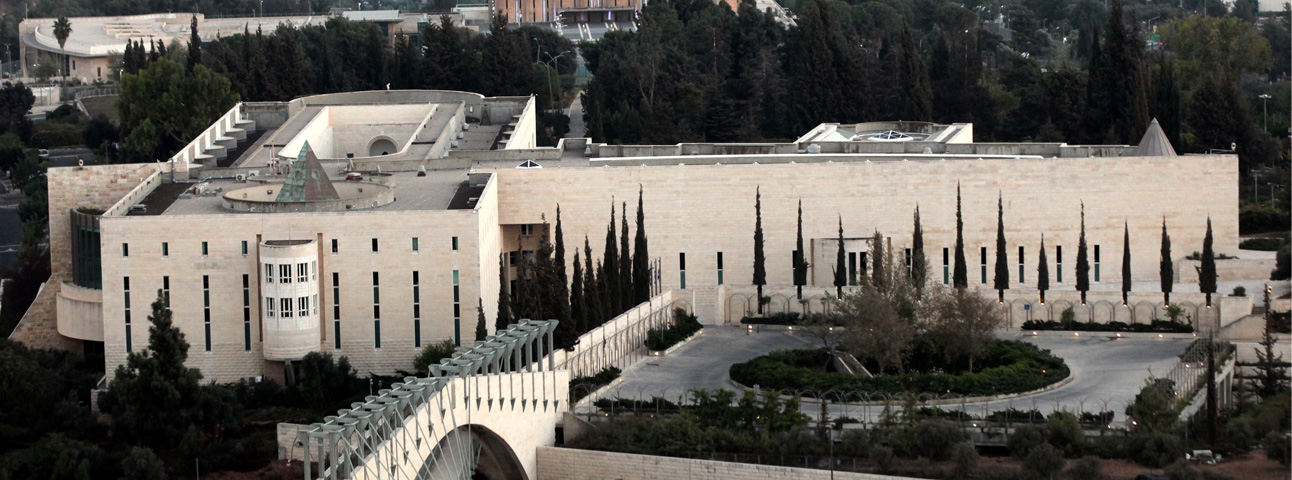The Supreme Court Doesn't "Tie Hands"
On claims that the High Court ties the security establishment's hands, Dr. Amir Fuchs says "the truth is that when authoritative figures from the defense establishment appear before the court to support some important security requirement, the court almost always adopts their argument".

Supreme Court | Flash 90
Recently, in connection with the question of fight against terrorism in Gaza, it has again emerged that 400 Hamas deportees deported to Lebanon in the early 1990s were "returned to Israel by the High Court of Justice" - and later become terrorist leaders.
First, the truth: When the deportees were still in Israel, waiting on buses, the Supreme Court approved their deportation unanimously, in a decision joined by its then-president Meir Shamgar and its future president Aharon Barak. The High Court did not return them to Israel. On the contrary, they were deported and remained in Lebanon.
Some of them returned to areas controlled by the Palestinian Authority, with Israel’s consent, and others became leaders in the Palestinian diaspora. To this day the defense establishment is divided over the question of whether the deportation did more damage than good, but this is irrelevant to the issue at hand. The fact is that the High Court did not prevent the expulsion ahead of time, and certainly did not return them afterwards.
Anyone can make mistakes in a live broadcast, but this one reflects a distorted mindset, fostered by politicians, opinion shapers, think tanks and others, according to whom the Supreme Court is “tying the hands of the authorities” in their war on terror. This is stated as part of the effort to justify the undermining of the court’s authority.
In reality, the situation is exactly the opposite: In most cases – in fact, almost always – the Supreme Court approves the methods the authorities wish to employ in the war on terror.
A short review of court rulings regarding extraordinary measures taken in this war would show “surprising” results. The court approved, under certain conditions, targeted assassinations, which are not a routinely approved tactic in a law-abiding country. In a ruling related to the use of torture there was rhetoric strictly prohibiting this policy, but behind these words a small crack was left open. This was interpreted by the security services as an endorsement, since the court defined certain cases as “ticking bombs,” in which physical pressure was considered a justified method, thus giving protection to an investigator using such methods. This little crack was subsequently expanded into a policy defined as “urgent investigations,” a policy which received the court’s official imprimatur in a court ruling two years ago.
This is true for other methods as well. The High Court has never accepted petitions contending that the demolition of a house was forbidden as collective punishment, nor has it ever limited administrative detention, i.e. imprisonment without charges. Last year the court approved the policy allowing army sharpshooters to fire at “key inciters” at demonstrations held at the Gaza border fence.
In a High Court ruling that dealt with a temporary injunction that prevents family reunification, the court, referring to Israeli Arabs and West Bank Palestinians, adopted the security reasons given by the state for prohibiting it. This reason doesn’t even convince people who usually assail the court. Many court rulings are criticized by human rights groups and jurists who argue that the court, almost automatically, toes the line in adopting the state’s claims of security considerations, without ever casting doubt on them. Such criticism is sometimes right and sometimes overblown. What is noteworthy is the contradiction between the virtual reality in which the court is depicted in the campaign for its delegitimization, and what actually happens.
Security agencies in Israel have a wide range of authority, sometimes unprecedented. Obviously, the High Court sometimes disqualifies the use of a certain method in isolated cases (or strikes down a temporary injunction and requires the state to bring a suspect before a judge).
If the court’s critics argue that even in such cases it has no authority to do so, there is no justification for its existence. If the High Court is meant to be only a rubber stamp that “approves” any action taken by the defense establishment, what need is there for it?
One has to fight this virtual reality, whether it’s based on lies or errors. The truth is that when authoritative figures from the defense establishment appear before the court to support some important security requirement, the court almost always adopts their argument, without tying their hands.
The article was published in Haaretz.
